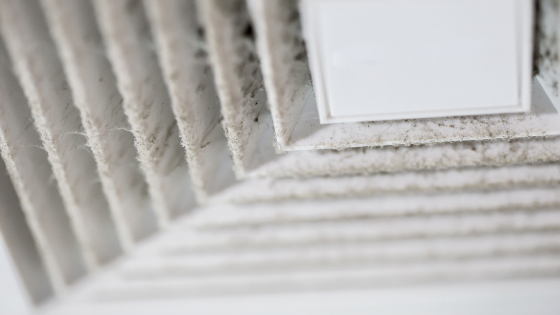The Importance of Ventilation
For high-quality air in your home, you’ll need proper ventilation. It is vital to healthy air. Good airflow will prevent your space from feeling stagnant and help you avoid air pollutants that can affect your respiratory health. Ventilation will help keep your air fresh and clean. If you want to avoid unwanted smells, stuffy air, and potential mold growth, keep your home ventilated. Every house will have different ventilation needs. Older homes tend to be more breathable than newer homes and need less ventilation. Your house’s ventilation needs will depend on its build, age, location, and how many people are living in it.
Don’t Block Airways
Keeping airways open is key to good ventilation. Open windows, vents, and doors to keep the air flowing. When air flow is blocked, there cannot be ventilation and your HVAC will have to work hard to pump air through your house. Be sure that you open doors in your house, letting the air flow through the whole house. You can also give your HVAC a break, turn it off for a few hours and open your windows. Or open your windows through the night to get some of the cool, crisp night air flowing through your house. It is especially important to keep bathroom doors open and utilize their fans. Bathrooms can easily get stuffy and be prone to mold growth without proper ventilation.
Clean Air Vents Regularly
If your vents are dirty, the air traveling through them will be dirty too. Replacing filters and cleaning vents regularly will increase your home’s air quality. Vents can easily get clogged up over time with debris and dust—when this happens, they can start to contaminate the air. Your HVAC will also have to work much harder to push air through clogged and dirty vents. Keep those vents clean and unobstructed for optimal airflow. Vents are easy to clean and filters are cheap (and easy) to replace—both of these tasks will make a big difference.
Use a Dehumidifier
Another key to good ventilation is avoiding excessive moisture. Ideally, the humidity level in your home should be about 40-50%. Too much humidity can leave your home vulnerable to mold growth, wood rotting, and other damage. A dehumidifier can make a big impact on your air quality. If you live in a particularly humid environment or it’s just a hot and humid season, a dehumidifier can make all the difference.
Use Indoor Ventilation and Outdoor Air
Your house should be ventilated with a balance of both indoor air and outdoor air. Utilize the ventilation available to you through your HVAC, indoor fans, keeping doors open, and also opening windows and doors to outside. A little extra ventilation in your bathrooms and kitchen will go a long way—these areas of the house are more likely to sustain mold growth and stagnant air. Doing what you can to get the air flowing throughout your hour with both indoor and outdoor air will keep your home well ventilated.

